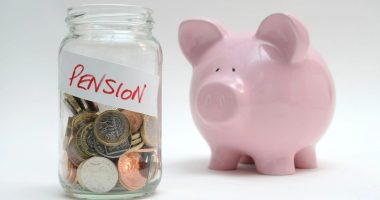
Q: I got food poisoning when my wife and I went for my birthday dinner at an expensive London restaurant. I was really unwell later that night — my wife not so much — and we reckon it was from a seafood platter we shared. My wife paid by credit card. Can we get our money back?
H. V., by email.


The couple ate a seafood platter at a swanky central London location – and one of them fell badly unwell
A: Yes, you can get your money back. You may also be able to claim some compensation, depending on the severity of the food poisoning and the effect it had on you.
The first step is to make a complaint directly to the restaurant, setting out all the relevant details. Include the date you went for dinner, the name the booking was under, what you ordered, and what you think gave you food poisoning.
You must also tell the restaurant when you started to feel unwell, what the symptoms were and how long they lasted.
In your letter, explain that you have pinpointed the cause of the food poisoning as the seafood platter and that it is a breach of the Consumer Rights Act, which states services (such as food preparation) must be carried out with reasonable care and skill.
This means you are entitled to a remedy which, here, is a full refund. There is also a second law that assists you here, called The Consumer Protection Act 1987. Put simply, this law requires that a food retailer must sell a product that is free from harmful bacteria, meaning if you are able to prove that your food poisoning was caused by the restaurant then the law states that it will be held liable for your illness.
In addition, this law does not require that it must be proven that a staff member (typically the chef) was negligent, but only that the cause of the food poisoning was due to unsafe food provided by the restaurant. This is called ‘strict liability’, and a trader does not want to be on the end of a claim with strict liability.


It is advisable to get a doctor’s note detailing symptoms to back-up your claim
If you want to claim compensation, as well as a refund, it would be preferable to have evidence of how you were affected, such as a letter from your doctor’s surgery if you attended a GP appointment. Also, if you missed work due to this, or if it caused you any other inconvenience, you should obtain evidence to prove it. You will then be claiming compensation for ‘pain and suffering’ and any losses you suffered as a consequence.
Usually, restaurants take these claims seriously, especially if you say you will consult a personal injury solicitor if a satisfactory offer is not made. In this respect, if the restaurant only offers you a refund initially, make sure you say you are not accepting this as compensation, otherwise the restaurant may say you have ‘settled’ the case.
Unless you suffer prolonged illness, the compensation is unlikely to be significant.
You should also alert your local environmental health department, who will investigate whether the restaurant has breached the Food Safety Act of 1990.
I bought a new car and when the log book arrived I discovered that I am the second owner. The dealership told me it was a brand new car — what can I do?
N. B. Leatherhead, Surrey.
A: It sounds as though either the dealership pre-registered the car in its own name, or the car was previously sold and the buyer rejected and returned it, perhaps under their ‘short-term right to reject’ entitlement, as there was something wrong with it.
Whatever the circumstances, as a prospective buyer you were entitled to know all the facts and this ‘material’ information should have been shared with you before you agreed to purchase the vehicle. One of the effects of the car having an additional owner is that it may impact its future value.
Your next step is to complain in writing to the dealership that there was a breach of the Consumer Rights Act, which says goods (including cars) must be ‘as described’.
The remedy here will be for the dealership to either give you some money back to reflect the diminution in value of the vehicle (you can negotiate) or to take the car back and give you a full refund.
The amount the dealership deducts from the price of a car is typically linked to the miles the consumer has clocked up. So if the previous owner had done ten miles, you would not expect any money off. But if it was hundreds of miles you would expect something in the region of £500. This needs to be looked at on a case-by-case basis.
If the dealership denies your claim and fails to tell you who the first owner was, fill out and file a DVLA form V888. This is the form used to request information about a vehicle and its past and present registered keepers.
The Driver and Vehicle Licensing Agency (DVLA) will want you to have a good reason for making the request, and you will say you are building a legal case against a car dealership. Armed with this information, you can make a section 75 claim if you paid all or part with a credit card, citing the dealership is in breach of contract.
You can also make a section 75 claim if you paid via a fixed-sum loan agreement, or you can file a claim with the County Court (in the small claims track, which is known as the small claims court, if the car was bought for less than £10,000), or the full County Court if the purchase price was greater than this.









